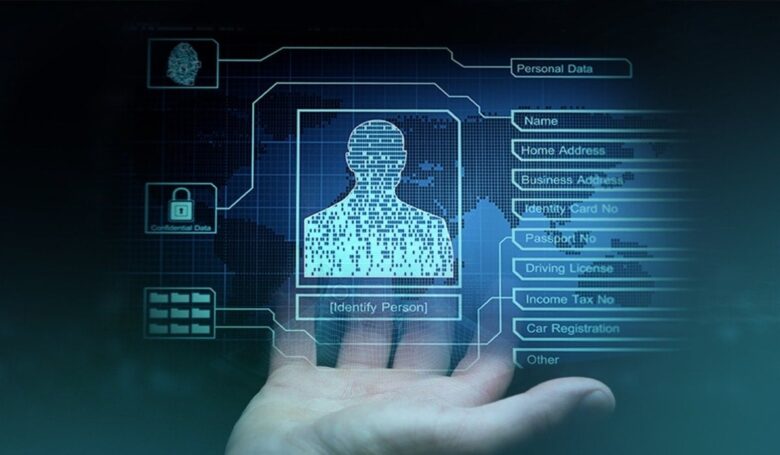Digital identity is the way an individual or organization presents themselves online through digital means. Digital identification is now a key component of the modern fintech landscape, ensuring that financial services are secure and user-friendly. As financial transactions increasingly take place online, the ability to effectively verify and manage digital identities becomes more important. This shift allows fintechs to accelerate onboarding, reduce fraud, and deliver customized services for each customer. Without strong digital identity systems, fintech companies struggle to gain trust and meet regulatory standards.
The Growing Importance of Digital Identity with Fintech Expansion
From mobile banking to peer-to-peer payments, fintech services are growing rapidly. Therefore, it is important to have a way to verify digital identities. Traditional techniques such as live and in-person ID verification can be slow and complex, making it harder for fintechs to provide a smooth customer experience. Digital identity solutions use technologies such as biometrics, blockchain, and artificial intelligence to quickly and securely verify an individual’s identity. This capability allows fintech companies to scale their services globally while meeting regulatory compliance and mitigating risk. That’s why digital identity recognition is a key component of today’s financial technology.
Digital Identity: A Way to Stop Fraud and Financial Crime
Fraud and financial crime are two major challenges facing fintech companies. Cybercriminals are constantly looking for vulnerabilities in digital systems to steal identities, launder money, or make unauthorized transactions. Digital identification systems protect against these threats by ensuring that only authentic users can use the service. When fraudsters use advanced authentication methods such as facial recognition, fingerprint scanning, and behavioral analysis, it becomes much harder for them to impersonate someone else. Fintech organizations protect their customers and brands with enhanced security through digital identity.
Enhance the Customer Experience with Digital Identity
Digital identification is essential for improving the customer experience. And that’s precisely what FinTech is all about. Digital identification allows people to open an account or apply for a loan without having to fill out a ton of paperwork or wait in line. It also allows people to get personalized financial products based on their confirmed identity and financial history. Fintechs thrive and retain customers because they feel that their personal information is being processed safely and easily.
Digital Identity and Compliance in Fintech
Fintech companies must comply with many regulations, such as Know Your Customer (KYC) and Anti-Money Laundering (AML). Digital identification solutions simplify regulatory compliance by automatically checking and monitoring user IDs. This process reduces manual errors, lowers operational costs, and helps fintech companies comply with the law in a timely manner. Regulators also like fintech companies that follow ethical digital identification practices, as they help maintain the integrity of the financial system and ensure consumer safety.
The Role of Blockchain in Digital Identity for Fintech
Blockchain technology offers fintechs new ways to improve digital identity management. Blockchain allows people to securely manage their personal data without having to rely on a central authority. It does this by generating decentralized identity documents that cannot be tampered with. This approach reduces the risk of data breaches and makes things more public. Fintech organizations can use blockchain-based digital IDs to quickly verify consumers while giving them more privacy and control. This model is becoming increasingly popular as it meets the growing demand for secure and user-friendly identity solutions.
Digital Identity and Financial Inclusion
Despite the importance of digital identity, integrating it into fintech is not simple. Privacy is of significant importance to users. Users want to ensure the safety of their personal data and prevent its use for malicious purposes. Interoperability is another issue. Different digital identification systems need to work together smoothly across platforms and borders. It’s also vital to make sure that those who are uncomfortable with or lack access to the technology can still use the service. To develop digital identification solutions that people can trust and use, fintech companies need to approach these issues very carefully.
The Future of Digital Identity in Fintech
Advances in digital identity technology will have a significant impact on the future of fintech. New concepts like standalone identity, which grants users complete ownership and control over their digital identity, have the potential to permanently transform identity management. Artificial intelligence is making identity verifications increasingly accurate and detecting fraud in real time. As fintech evolves into new financial products and services, digital identity will always be the backbone. This ensures that users are safe, compliant, and authorized and contributes to the development of a more open and efficient future for the sector.
Conclusion
In today’s financial world, digital identity is incredibly important. It makes financial services safer and more efficient by identifying users more quickly, increasing security, improving the customer experience, and improving regulatory compliance. Digital identification can also help people access more financial services and give them more control over their personal data. There are still some challenges to be solved, but continued innovation and collaboration between fintechs, regulators, and technology providers will enable a future where digital identification is reliable and works well. Ultimately, these developments will change the way people use financial services everywhere.
FAQs
1. What does “digital identity’ mean in the context of fintech?
Digital identity is the online proof and representation of an individual or organization’s identity. It is used to securely access and use financial services.
2. Why is digital identity so important for fintech companies?
It allows fintech companies to quickly verify users’ identities, prevent fraud, comply with regulations, and provide better services to customers.
3. How does digital identity make fintech more secure?
Digital identification systems use modern authentication technologies such as biometrics and artificial intelligence to ensure that only authentic users can access financial services. This reduces the risk of fraud.
4. Can digital identity help people who don’t have a traditional ID card?
Yes, fintechs can use biometrics or mobile data as alternative ways to verify customers who don’t have formal identification. This approach will give more people access to financial services.
5. What role does blockchain play in digital identity?
Blockchain can enable decentralized, tamper-proof identity data, give people ownership of their data, and make everything more secure and open.




